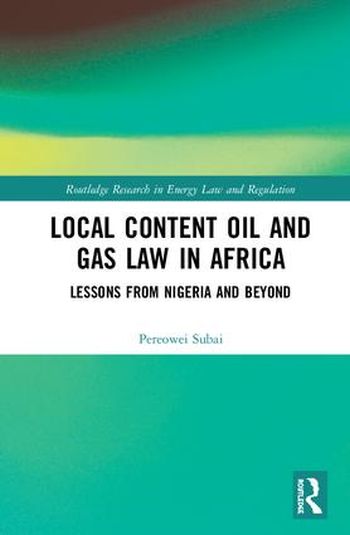We will be closed from 5pm Thursday 17th April for the Easter Bank Holidays, re-opening at 8.30am on Tuesday 22nd April. Any orders placed during this period will be processed when we re-open.

Examining local content law and policy in the oil and gas industry, this book uses Nigeria as a primary case study, comparing its approach to countries such as Brazil and Norway which have also adopted local content laws in relation to their gas and oil industries. In considering various aspects of local content law and policy as they apply to the oil and gas industry, the book examines the factors behind the formulation of local content policies by petroleum producing states, and the various strategies they have employed to implement them. It analyses arguments against local content requirements from the perspective of international trade and investment law, and from liberal market economic theorists, who argue against its overall usefulness. The book highlights salient aspects of the oil and gas industry such as regulation, national oil companies, treatment of minorities, and policy formulation and implementation.